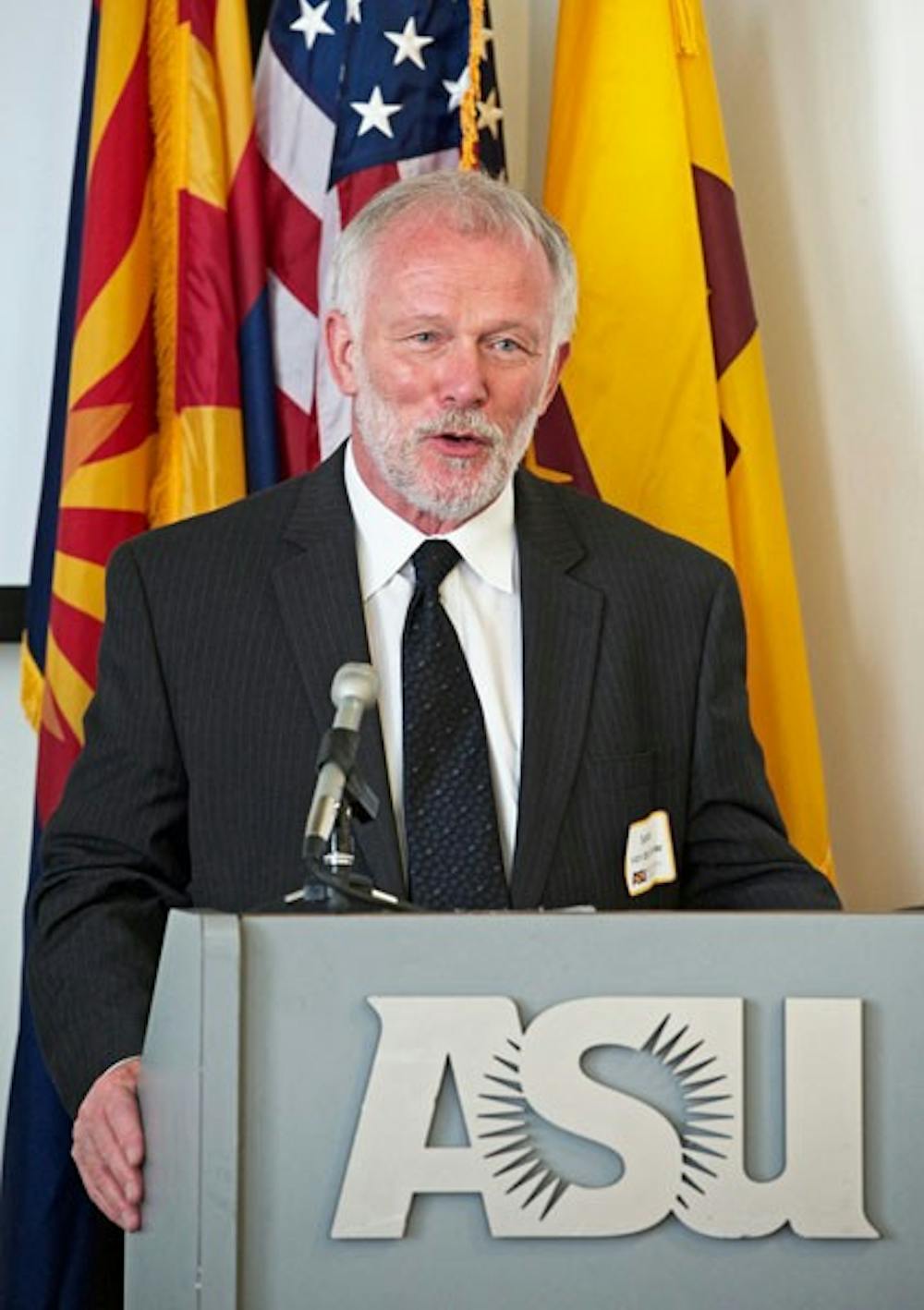ASU launched its Consortium for Biosocial Complex Systems Wednesday afternoon, a new research unit comprised of faculty from three units of the College of Liberal Arts and Sciences.
Researchers and professionals from multiple disciplines collaborated to create the consortium, which will tackle complex issues affecting the world.
“The future is a complex system if there ever was one, and it’s getting more complex by the day,” said Sander van der Leeuw, director of the consortium. “By bringing this consortium together … you’re actually creating a community that will generate ideas that are different from the traditional university’s ideas.”
The consortium is made up of members from the Center for Social Dynamics and Complexity, the Center for the Study of Institutional Diversity and the Mathematical, Computational and Modeling Center. It seeks to address the issues identified as complex adaptive systems, which includes the spread of pandemic flu and the rise of obesity and diabetes to the outcomes of social responses to natural disasters.
University Vice President and Dean of the College of Liberal Arts and Sciences Quentin Wheeler spoke at the launch, saying he’s excited about the consortium’s future.
“‘Out of intense complexities, intense simplicities emerge,’” Wheeler said, quoting Winston Churchill. “And I think maybe that’s our best hope for bold, visionary efforts, such as this consortium, is that we will indeed get intense new directions to confront these complex problems.”
Members of the consortium said that one reason behind the group’s formation is to work with students and make them more adapted to deal with tomorrow’s challenges.
“I think that one of the pressing challenges that we have at Arizona State is how to generate a large group of highly competitive students that can take the nation by storm,” said Carlos Castillo-Chavez, director of the Mathematical, Computational and Modeling Sciences Center.
Chavez said the group hopes to generate successful, competitive students by allowing them access to work with the consortium’s wide-ranging fields of expertise.
“If we could do that, … that would allow us to solve the problems [and] keep this democracy vibrant and strong,” Chavez said.
Members of the consortium said this new approach exemplifies the vision of ASU as the New American University.
“Whether you’re looking at our transdisciplinary schools, the kinds of complex problems that the faculty and their students are taking on, or of our various research institutes and centers,” Wheeler said, “they all represent this same kind of bold approach to take on conventional tasks to complex problems.”
Though they couldn’t yet speak about specific issues the consortium is tackling, members said many different ideas will become complex research projects.
This collaboration is an ideal environment to tackle today’s issues, van der Leeuw said.
“That actually makes not only for a more lively academic community, but also for students that ultimately are better adapted to what the world is going to bring for them,” he said.
Reach the reporter at joseph.schmidt@asu.edu.





